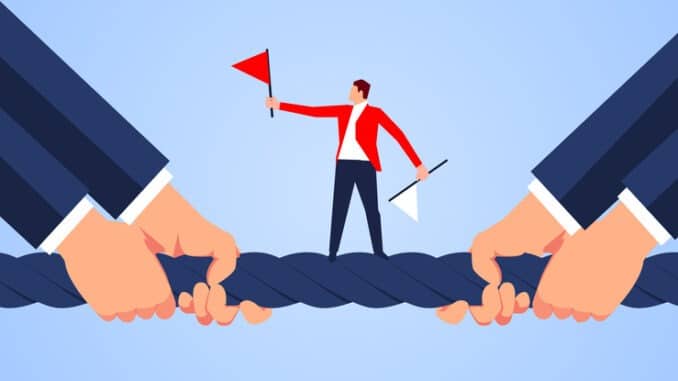Recovery from substance abuse is a journey that affects not just the individual, but also their relationships with family, friends, and significant others. As one embarks on this path to healing in 2024, understanding and navigating the complexities of these relationships is crucial. This article explores the common relationship challenges faced during recovery and offers guidance on how to manage them effectively.

Understanding the Impact of Substance Abuse on Relationships
The journey of recovery from substance abuse is not just a personal endeavor; it deeply affects the relationships around the individual. To navigate these waters effectively, it’s crucial to understand how substance abuse impacts these connections. Let’s delve deeper into this aspect.
Eroding Trust and Communication
One of the most profound impacts of substance abuse on relationships is the erosion of trust. When a person struggles with addiction, their actions and behaviors can become unpredictable, often leading them to break promises and behave in ways that betray the trust of their loved ones. This breach of trust can create a deep chasm in the relationship, making it challenging to maintain open and honest communication. Loved ones may feel alienated or deceived, which can lead to misunderstandings and resentment.
Altered Family Dynamics
In a family setting, substance abuse can significantly alter the dynamics. Roles within the family may shift as other members try to compensate for the instability caused by the addiction. Children, in particular, may take on more responsibilities or even parental roles, leading to long-term emotional and psychological effects. Spouses or partners may find themselves oscillating between caregiver and enforcer roles, adding strain to the relationship.
Social Isolation
Substance abuse often leads to social isolation for both the individual and their loved ones. Friends and family may withdraw from social interactions due to embarrassment or uncertainty about how to deal with the situation. The person struggling with addiction may also isolate themselves, either out of shame or to hide their substance use. This isolation can strain relationships and create a sense of loneliness and detachment.

Emotional Volatility and Conflict
Addiction can cause heightened emotional volatility in relationships. Mood swings, irritability, and unpredictable behavior can become common, leading to increased conflict and tension. Loved ones may feel like they are walking on eggshells, constantly wary of triggering a negative reaction. This environment of heightened emotions can make it difficult to have calm, constructive conversations about the issues at hand.
Financial Strain
Substance abuse can also have a significant financial impact on relationships. The cost of acquiring substances, potential legal troubles, and loss of productivity at work can put a substantial financial strain on the family. This can lead to serious conflicts and stress, especially if financial resources are diverted from essential family needs to support the addiction.
Impact on Intimacy and Partnership
For couples, substance abuse can deeply affect intimacy and the partnership aspect of the relationship. The person struggling with addiction may become emotionally unavailable or neglect their responsibilities in the relationship. This can lead to feelings of neglect, resentment, and loneliness in the partner, who may feel they are in a relationship with the substance rather than their significant other.
Rebuilding Trust and Communication
Honesty and Transparency
Being honest and transparent is key to rebuilding trust. This means being open about your feelings, struggles, and the recovery process. It also involves making amends for past actions where possible and showing through actions that you are committed to change.
Professional Counseling
Engaging in professional counseling, both individually and as a couple or family, can be incredibly beneficial. A therapist can provide a safe space to address issues, improve communication skills, and help heal relationship wounds.
Setting Boundaries for a Healthy Relationship
Establishing Personal Boundaries
Setting boundaries is crucial in recovery. This involves communicating your needs and limits to your partner and respecting theirs in return. Boundaries can include things like personal space, time for recovery activities, or limits on discussing certain topics.
Supporting Without Enabling
Loved ones must learn the difference between supporting and enabling. Support involves encouraging and aiding recovery efforts, while enabling can mean inadvertently supporting addictive behaviors. Understanding this difference is crucial for a healthy relationship dynamic.
Dealing with Codependency
Recognizing Unhealthy Patterns
Codependency is a common issue in relationships affected by substance abuse. It involves a pattern of behavior where one partner excessively relies on the other for emotional or psychological support. Recognizing and addressing these patterns is important for both partners’ well-being.
Seeking Independent Support
Both partners should have their own support systems and interests outside the relationship. This ensures that each person maintains their independence and doesn’t rely solely on the other for emotional support or validation.
Navigating Social Situations in Recovery
Choosing Healthy Environments
Navigating social situations can be challenging in recovery. It’s important to choose environments that support your sobriety and to communicate with your partner about what types of social settings are comfortable for you.

Open Communication About Triggers
Being open with your partner about potential triggers and having a plan to handle challenging situations is essential. This can include having a signal for when you need to leave a situation or discussing how to handle social drinking or drug use by others.
Reach Out To Us Today
Navigating relationship challenges during recovery is a delicate process that requires patience, understanding, and effort from all parties involved. By focusing on rebuilding trust, setting healthy boundaries, and maintaining open communication, it’s possible to strengthen relationships and support the recovery journey.
If you’re facing relationship challenges in recovery and need support, don’t hesitate to reach out to us. Our team is dedicated to providing guidance and resources to help you navigate these complexities. For those in Tennessee, our sister company offers specialized services to assist you and your loved ones. Together, we can work towards building stronger, healthier relationships in your recovery journey.












